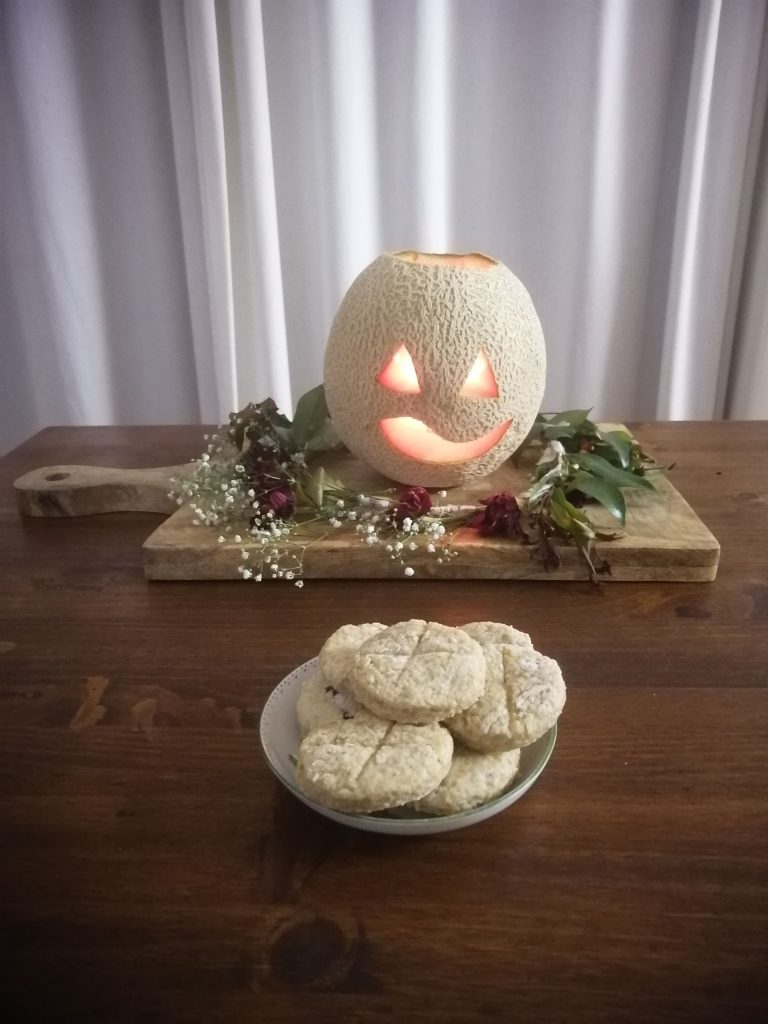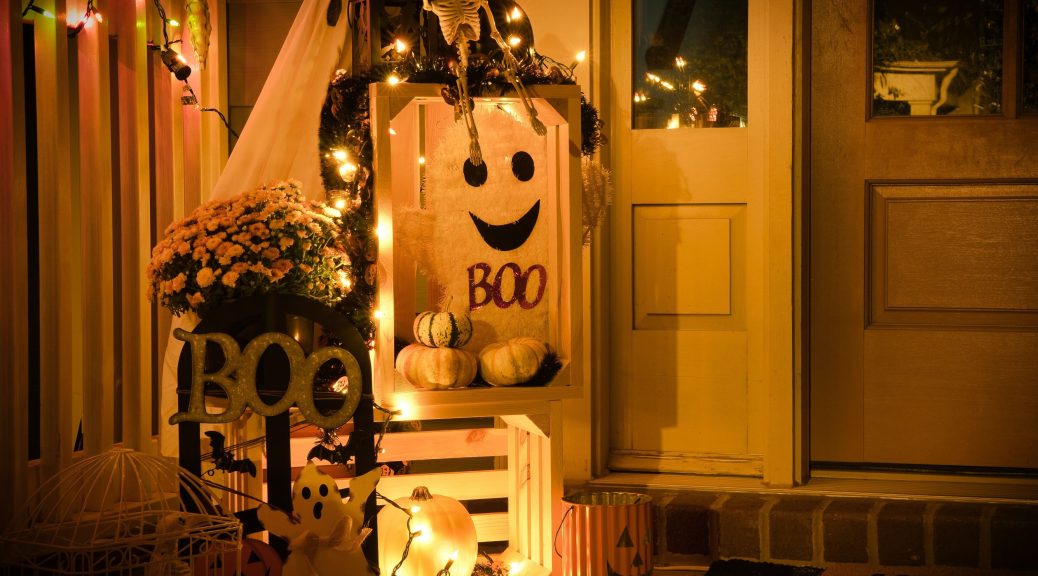Hallowe’en holds many fond memories for me. It started in the early nineties. I was attending an American school and special occasions came with a lot of fanfare, including Hallowe’en. Every year we’d have costume parades, class parties, and trick-or-treating. I’ll always remember dressing up as Minnie Mouse and having the heebie jeebies scared out of me by my older brother during the costume parade, because as his class marched past, he leapt out and growled at me full force through his monster mask.
My love for horror movies only came several years later when my friends and I started an annual ritual of watching horror movies for her birthday. The first movie we watched in the first year we observed this ritual was Scream, and no movie in the subsequent years that we observed this ritual could ever hold a candle to it. Scream, however, was not the first horror movie I watched. I’d caught horrifying glimpses of Nightmare on Elm Street, courtesy of my brother, and at some point watched The Craft, after which my friends and I tried to recreate the levitating scene.
In years to come I’d watch horror movies every now and again – especially if it was a zombie movie or if there was a Scream sequel – but it’s only in recent years that I’ve delved deeply into it by devoting the whole of October to horror movies and books. This new ritual came close on the heels of my brother’s death. In life he, much like me, had fond memories of celebrating Hallowe’en.
When he moved in with his fiancée, their neighbourhood organised trick-or-treating for the kids. If you wanted to participate, you had to decorate your gate in some way that signalled kids could expect candy from your abode. My brother’s decorative idea was to carve jack o’ lanterns out of melons (seeing as it’s spring here and not fall, and pumpkins hard to come by). After he passed away, I started a tradition of carving them every year to commemorate him.

The horror-watching and reading ritual started at about the same time and of course took place in October, the month of Hallowe’en. Much like Christmas, Hallowe’en is a Christian holiday steeped in pagan traditions, with both becoming increasingly secularised and commodified. But in earlier iterations, Hallowe’en is associated with death, whether through warding off evil spirits by lighting bonfires or remembering the dead “including martyrs, saints and all faithful departed Christians”.
It’s this tradition of commemorating the dead that has struck me the most. After losing my brother, I’d been yearning for something like this, especially as I lament what feels like a modern disregard for the dead. We’re so busy caught up in fast-paced, consumer-driven lives that society seems to have no place or time for the dearly departed. That’s not to say humans have no rituals or observances: the Mexicans have Dia de los Muertos (Day of the Dead) and many religions erect shrines dedicated to the memory of the deceased. I have something similar to the latter, but I’m wary of appropriating other cultures, especially Día de los Muertos, which has become heavily misappropriated in recent years. I thus wanted a ritual that spoke to me and my history, and Hallowe’en gives me that chance.
Watching and reading horror is part and parcel of the monthly celebrations. Around this time of year, listicles abound of what horror books to read and movies to watch. But I don’t watch these movies and read these books, just for the thrills. I watch and read horror because this genre is about so much more than being scared.
View this post on Instagram
Admittedly as a kid, it probably was for the thrills. I don’t quite know what drew me to horror in my younger years. Maybe it had to do with being caught up in a pop culture moment as Scream brought the slasher sub-genre back to life. Maybe it was a throwback to the dark children’s stories of my German upbringing. Now, at this juncture in my life, the horror story binge in October has more to do with celebrating Hallowe’en as a way of commemorating my brother.
Horror stories, for all their jump scares and nerve-jangling film scores, along with the occasional subgenre filled with blood and gore, deal with loss. The victims in the stories are often relatable protagonists (with the exception of the occasional asshole or two we’re happy to see offed). We think these characters will escape the clutches of death, even while we know that the very fact they’re in a horror movie means they won’t. In this sense, the story’s boogeyman or serial killer may act, to make one example, as a metaphor for a terminal illness stalking loved ones. We hope against false hope they’ll escape, but the rules of its cruel game mean deep down we know they won’t.
Why would we want to be reminded of this? Because while real life may not defeat death, we can derive comfort from its being confronted and defeated in fiction. This may be only temporary, as we become encompassed in the world of the story, but it provides an outlet for our grief, a way of acknowledging and processing it. Furthermore, by remembering death, we remember life, instead of banishing the deceased to the back burner of memory as society seems wont to do. As writer Elie Wiesel said, “To forget the dead would be akin to killing them a second time.”
What’s more, when we watch and read tales of horror and death, the characters become mouthpieces for our loss and the feelings that accompany it. The rise of long-form storytelling in television has lent itself particularly well to this, evidenced poignantly in the adaptation of Shirley Jackson’s excellent The Haunting of Hill House, as well as its follow-up The Haunting of Bly Manor, an adaption of Henry James’s novella The Turn of the Screw. In an episode of this series, the young Flora captures her unmoored feelings of loss and grief, concluding on an important note.
Flora: When mum and dad died, I thought I was going to die too. I was sure of it. But then I thought: what if I was already dead, but nobody else knew, and I was walking around dead, but everybody could see and hear me. That was dreadful. It only felt like dying because actually I was still alive. You have to be, to feel that way. I wasn’t dead. I was just really, really sad. But then I learned a secret. I didn’t even need to be sad anymore.
Owen: What secret?
Flora: Dead doesn’t mean gone.
My focus here has been mainly on death, grief, and commemoration, but it’s worth noting (in further defense of the genre) that not all horror stories are about loss and death in such a personal way. Zombie movies are less individual or personal, instead focusing the lens on society. Think of George A. Romero’s 1968 zombie classic Night of the Living Dead, which reveals how different people react in a crisis (in this case, zombies), more so when they’re all trapped in a confined space together. Romero’s zombie movies also highlighted the pitfalls of consumerism (Day of the Dead) as well as the oppressiveness of systemic injustice (Land of the Dead). Whether personal or otherwise, studies have shown that watching horror movies helps us cope with real-life horror, serving as a mental rehearsal for actual events.
There are also the tales of witches that explore the politics of gender and the patriarchy as seen in Buffy, Chilling Adventures of Sabrina, and The Witch; or the examination of race relations in Get Out, Us, and Candyman. As film journalist Rosie Fletcher points out, it’s not just about death but also about survival: “[Horror movies] are about conquering demons and relentlessly gripping onto life and hope.” And Hallowe’en, with its focus on all things horrific and terrifying, can be a vehicle to help us achieve that.
Dressing up and eating candy may, of late, be ascribed to the commodification of this occasion (and there’s no denying that has become a problem), but it also gives us a chance to feel young and fancy-free, even if just for a day. In watching and reading horror stories, seeing the villain get their comeuppance grants catharsis from the daily evils we witness in this world, while confronting death reminds us that life is not only fragile but special, and should always be remembered.
